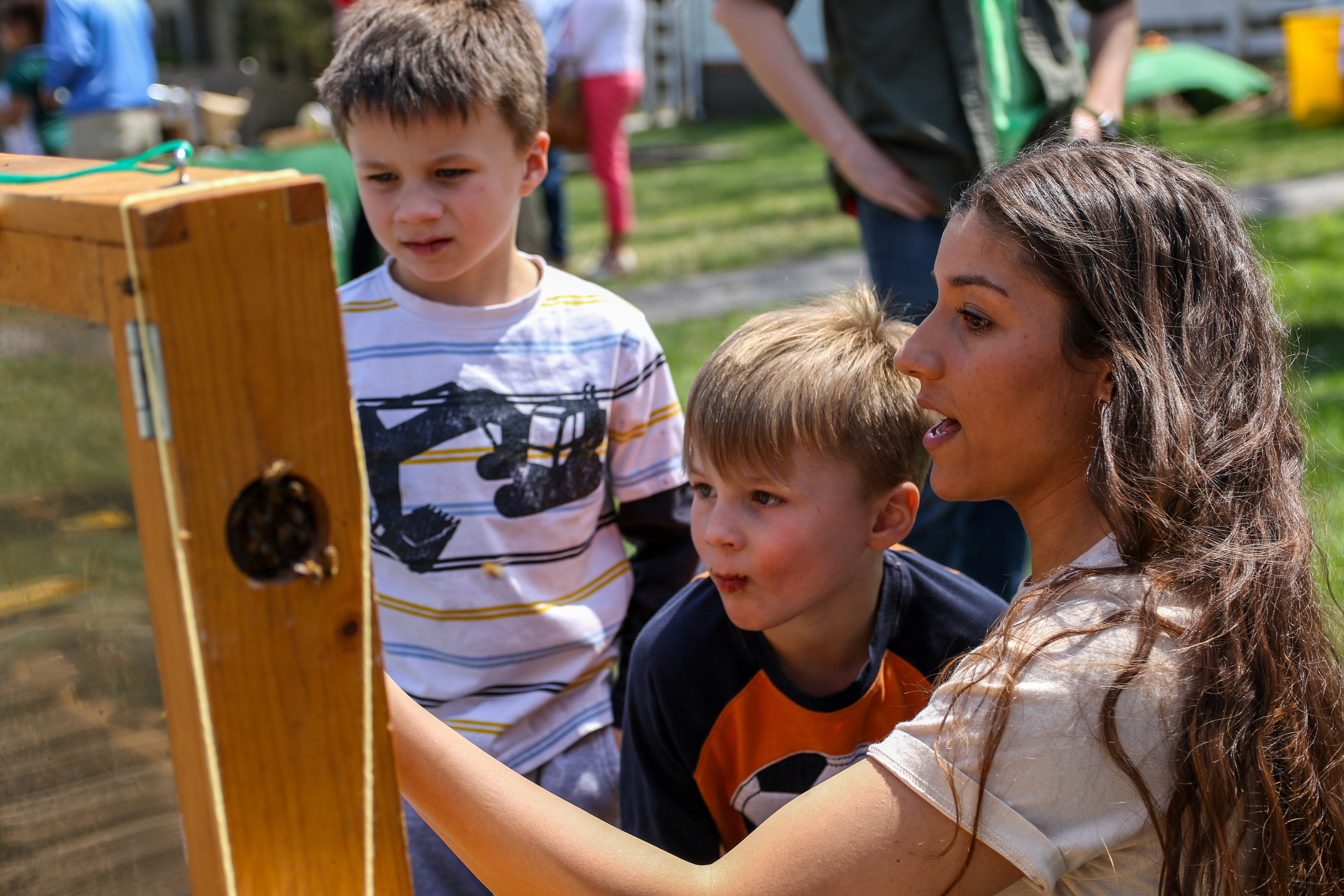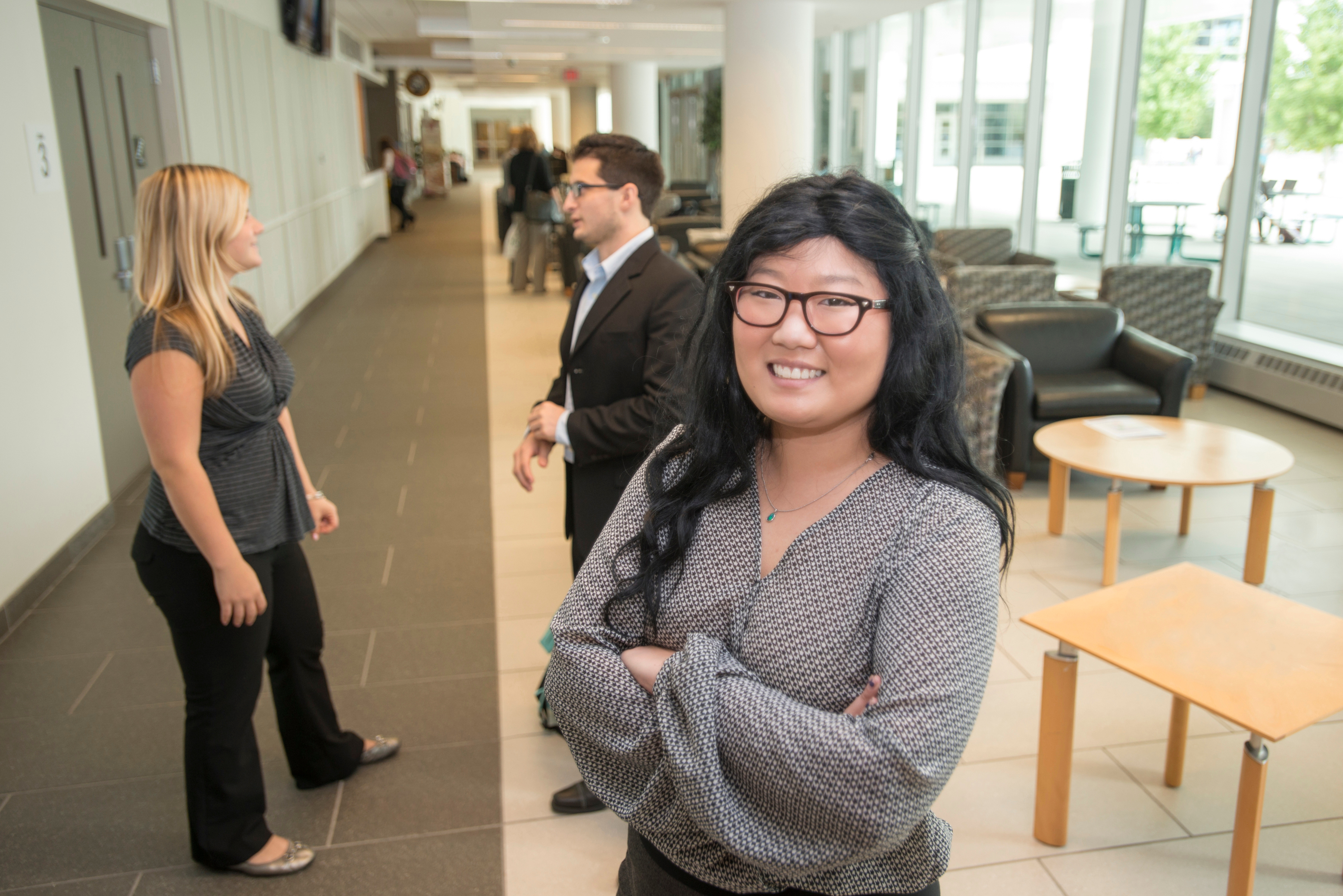
The Business for a Better World Center addresses the world’s “wicked” challenges through innovative curricula, cutting-edge cross-disciplinary research, and robust private-public partnerships, empowering leaders to create a better world.
B4BW Vision and Mission
Our Vision
Business is a force for good in the world, leading the charge to address the world’s wicked problems.
Our Mission
Educate the next generation of business leaders ready to take on the world’s complex challenges.
Generate knowledge that transforms business “as usual.”
Convene leaders across sectors to exchange ideas and generate new ways of doing things.
Effect positive change in the world by actively engaging in partnerships with organizations and communities.
Reshape business education by leading an international movement to advance the idea of business for a better world.
Reshaping Business Education
Our Work
orporationsC, non-profits, universities, students. A better world is everyone’s business. Our challenges cross disciplines, cultures, and national borders, and they will only be solved if we work together.
Tomorrow’s leaders must act as though the purpose of business extends beyond creating short-term value for shareholders, to include the creation of long-term value for both business and society.
We believe that business can and should be a force for good, though achieving that lofty vision necessitates reorienting business education. For the sake of our planet and people across the globe, we commit to remaking business education and demonstrating the critical role that business plays in addressing the world’s problems by providing hands-on, thought-provoking, and distinctive learning experiences.
Guided by the United Nations’ 17 Global Goals, we will prepare tomorrow’s leaders to act with people, planet, and prosperity in mind.
Our challenges cross disciplines, cultures, and national borders, and will only be solved if we work together. We believe business is a force for good in the world, leading the charge to address the world’s wicked problems. To make that vision a reality, our mission has five elements that frame our efforts and ensures the Center will:
Educate the next generation of business leaders to take on the world’s complex challenges.
- Focused on social impact, the two-year, cohort-based Impact Fellows Program is designed for first-year students from groups under-represented in business.
- How can we continue to push social change forward? Our Liberal Arts and Business Wicked Problems Boot Camp is working on that.
Generate knowledge that transforms business “as usual.”
- Our Stakeholder Value Creation Index will show what, if any, progress public companies are making toward ensuring stakeholder value, influencing industry leaders and policy makers.
- The Lunchtime Conversations series brings together experts from across Mason, driving research, curriculum, and policy action at the university.
Convene leaders across sectors to exchange ideas and generate new ways of doing things.
- Our Stakeholder Roundtable Series forces a dialogue around stakeholder capitalism and will help change the trajectory of our businesses.
- The Business for a Better World Speaker Series brings social impact and sustainability thought leaders from top-tier organizations directly to our students and campus community.
Effect positive change in the world by actively engaging in partnerships with organizations and communities.
- Working with the Mason and Partners Clinics, we are ensuring improved health and wellness outcomes for the Bailey’s/Culmore community in Fairfax County.
- Designed to empower communities through sustainable beekeeping, our Honey Bee Initiative’s work in Colombia was recognized in 2020 as the 15th-best overall social and environmental project in Latin America and the Caribbean by the Latin American Green Awards.
Lead an international movement to advance the ideal of business for a better world.
- We are developing new courses and minors because we must change the way we educate future business leaders.
- We are hosting and participating in international conferences, including bringing the 2021 Ashoka U Exchange to Mason’s campus.
Projects for a Better World
Our mission shapes the Center’s activities and programs, led by five signature initiatives.
While talent may be equally distributed, opportunity is not. Impact Fellows, a two-year, cohort-based undergraduate program, serves students from populations typically underrepresented in business and provides a unique learning environment that will support their development into changemakers. Impact Fellows take courses together, experience speakers and activities outside of the classroom, engage in a residency where they learn and apply social enterprise concepts in a domestic or global setting, and have internships within the responsible business space.
Though increasingly important gateways to employment post-graduation, internships, offered without pay, remain out of reach for many. The Center’s Internship Access Award addresses the barriers underserved populations may face in pursuing these essential opportunities. The program provides funding to students that makes it possible for them to accept unpaid or low-paid internships.
To reduce economic inequality, the Center’s Social Incubator nurtures ideas and business startups with a singular focus on creating income and employment for people and communities living at or below poverty level. This is accomplished through a combination of expertise, mentorship, and seed funding.
Like much in our society, the gospel of shareholder capitalism—the belief that the sole purpose of a corporation is to make money for its shareholders—is currently experiencing a long-overdue reexamination and upheaval. To help ensure forward progress is maintained on this front, our Stakeholder Roundtable Series explores stakeholder capitalism, what it means, and how it can be applied to our businesses in a world rife with persistent inequality, social injustice, racial bias, and political polarization.
Business norms need to reflect today’s expectations. To articulate, define, and measure the stakeholder value being created by our public corporations, we will create and launch a Stakeholder Value Creation Index. With an eye toward influencing industry leaders and policy makers, this index will provide a holistic, objective, and relevant set of measures that will assist both our students and faculty in their research and pedagogy.
Mason and the Public Good
Our Distinctive Value
George Mason University is uniquely positioned to play a leadership role in the business-for-good space. Central to Mason’s strategic plan is the following question: “What can Mason do—or do better—to produce the types of graduates, scholarship, and service-oriented action that will best serve society?” This question is rooted in Mason’s history and culture, which define us as a place where diversity in thought, demographics, and field of study is applauded, where mission-driven efforts are encouraged, and collaboration with community is rewarded.
George Mason University’s School of Business cares deeply about educating our students to be leaders who are well-equipped to address some of the world’s most pressing challenges. We want our students to understand the role of organizations in addressing sustainable development goals. We are committed to educating our students to serve as ambassadors who will lift and transform the notion of what business looks like in the 21st century. Our ultimate goal is to make a significant difference for the next generation of business leaders.
Several schools (including Stanford, MIT, Cornell, Case Western, Georgetown, and Duke) have centers and/or initiatives related to multidisciplinary social innovation. What sets Mason apart from its peers are the following:
- Access: Mason offers a high-quality education for an affordable price at a public institution that is open to all.
- Diversity: Mason is home to a diverse student population: 40% of undergraduates are first-generation college students, and one-third are low-income students who qualify for Pell Grants (federal need-based financial aid).
- Location: Strategically located in the heart of a culturally-, economically-, and politically-rich region, Mason offers unparalleled experiential, real-world learning opportunities across all sectors.
- Focus: Mason’s B4BW is devoted to university-wide, cross-disciplinary, collaborative, hands-on learning aimed to address the UN Sustainable Development Goals.
To discuss opportunities for supporting B4BW, please contact:
Christina Spring
Interim Director, Advancement and Alumni Relations
School of Business
703-993-5297
cspring4@gmu.edu
Lisa M. Gring-Pemble, Ph.D.
Associate Professor of Business
Co-Executive Director, Business for a Better World Center
School of Business
703-993-4174
lgringpe@gmu.edu


